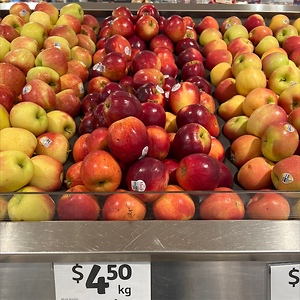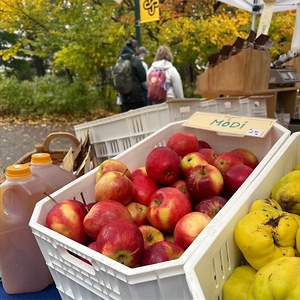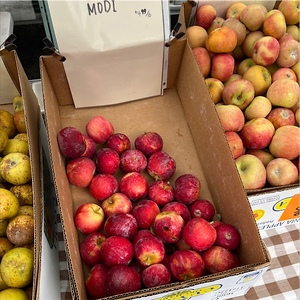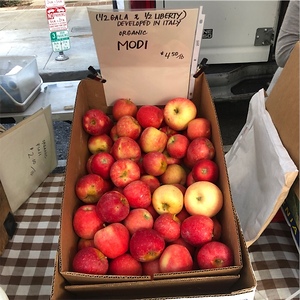

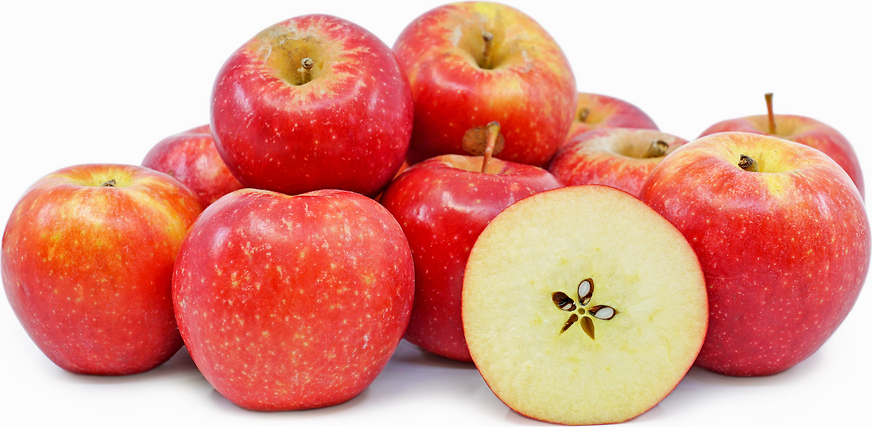
Modi Apples
Estimated Inventory, lb : 0
Description/Taste
Modì® apples are medium to large in size and are round to conical in shape, averaging 7-8 centimeters in diameter. The skin is smooth, firm, and is best recognized by the dark purple-red coloring displayed over patches of yellow or green. The cream-colored flesh is crisp and juicy with a few dark brown seeds encased in a fibrous central core. Modì® apples are crunchy and have a mild flavor that is balanced between tart and sweet.
Seasons/Availability
Modì® apples are available in the fall through spring.
Current Facts
Modì® apples are a modern variety of Malus domestica developed in Italy. A cross between the gala and liberty apple, Modì® apples were created by researchers to be an eco-friendly variety resistant to scab and other diseases. The name Modì points to this apple’s Italian origins. Modì was the nickname for Modigliani, a famous Italian artist known for his use of intense red colors, similar to the color of this apple. Modì® apples were designed to be an all-purpose apple and are known for their sweet flavors and crunchy texture.
Nutritional Value
Modì® apples contain vitamin C, which can help boost the immune system, along with both soluble and insoluble fiber, which can help with digestion.
Applications
Modì® apples are best suited for both raw and cooked applications such as baking and roasting. When used raw, the apples can be consumed fresh out of hand, sliced and mixed with green salads, or served with cheese and other fruit on platters as an appetizer. They can also be baked into pies, crisps, muffins, tarts, and scones. Modì® apples pair well with spinach, fennel, feta, blueberry, strawberry, orange, cinnamon, nutmeg, oatmeal, yogurt, chives, and smoked salmon. They will keep for a couple of weeks when stored in a cool and dark place.
Ethnic/Cultural Info
Like many modern apples, Modì® apples were developed by commercial growers who were specifically looking to breed a certain kind of apple. Modì® apples were created with environmental issues in mind as they are resistant to disease and require fewer pesticides. They can also tolerate heat and dry climates requiring less water and can grow in more diverse regions. Scientists have even measured the carbon footprint of Modì® apples at the University of Bolzano and have also measured the greenhouse gas emissions produced by the growing process to ensure it has little negative impact on the environment.
Geography/History
Modì® apples were created at the Consorzio Italiano Vivaist in Italy by researchers in the 2000s and were then introduced to the United States in 2014. Today Modì® apples can be found at specialty markets in the United States, Europe, Australia, Russia, India, and South America.
Recipe Ideas
Recipes that include Modi Apples. One



